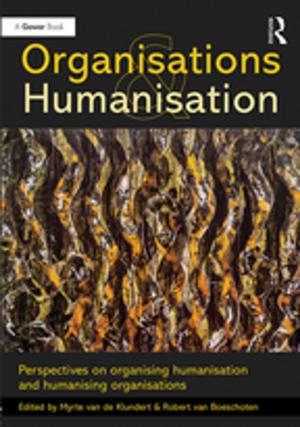Affects As Process
An Inquiry into the Centrality of Affect in Psychological Life
Nonfiction, Health & Well Being, Psychology, Applied Psychology, Psychotherapy, Mental Health| Author: | Joseph M. Jones | ISBN: | 9781134883615 |
| Publisher: | Taylor and Francis | Publication: | June 11, 2014 |
| Imprint: | Routledge | Language: | English |
| Author: | Joseph M. Jones |
| ISBN: | 9781134883615 |
| Publisher: | Taylor and Francis |
| Publication: | June 11, 2014 |
| Imprint: | Routledge |
| Language: | English |
In this readable meditation on the nature of emotional experience, Joseph Jones takes the reader on a fascinating walking-tour of current research findings bearing on emotional development. Beginning with a nuanced reappraisal of Freud's philosophical premises, he argues that Freud's reliance on "primary process" as the means of linking body and mind inadvertantly stripped affects of their process role. Further, the resulting emphasis on fantasy left the problem of conceptualizing the mental life of the prerepresentational infant in a theoretical limbo.
Affects as Process offers an elegantly simple way out of this impasse. Drawing in the literatures of child development, ethology, and neuroscience, Jones argues that, in their simplest form, affects are best understood as the presymbolic representatives and governors of motivational systems. So conceptualized, affects, and not primary process, constitute the initial processing system of the prerepresentational infant. It then becomes possible to re-vision early development as the sequential maturation of different motivational systems, each governed by a specific presymbolic affect. More complex emotional states, which emerge when the toddler begins to think symbolically, represent the integration of motivational systems and thought as maturation plunges the child into a world of loves and hates that cannot be escaped simply through behavior. Jones' reappraisal of emotional development in early childhood and beyond clarifies the strengths and weaknesses of such traditional concepts as infantile sexuality, object relations, internalization, splitting, and the emergence of the dynamic unconscious. The surprising terminus of his excursion, moreover, is the novel perspective on the self as an emergent phenomenon reflecting the integration of affective and symbolic processing systems.
In this readable meditation on the nature of emotional experience, Joseph Jones takes the reader on a fascinating walking-tour of current research findings bearing on emotional development. Beginning with a nuanced reappraisal of Freud's philosophical premises, he argues that Freud's reliance on "primary process" as the means of linking body and mind inadvertantly stripped affects of their process role. Further, the resulting emphasis on fantasy left the problem of conceptualizing the mental life of the prerepresentational infant in a theoretical limbo.
Affects as Process offers an elegantly simple way out of this impasse. Drawing in the literatures of child development, ethology, and neuroscience, Jones argues that, in their simplest form, affects are best understood as the presymbolic representatives and governors of motivational systems. So conceptualized, affects, and not primary process, constitute the initial processing system of the prerepresentational infant. It then becomes possible to re-vision early development as the sequential maturation of different motivational systems, each governed by a specific presymbolic affect. More complex emotional states, which emerge when the toddler begins to think symbolically, represent the integration of motivational systems and thought as maturation plunges the child into a world of loves and hates that cannot be escaped simply through behavior. Jones' reappraisal of emotional development in early childhood and beyond clarifies the strengths and weaknesses of such traditional concepts as infantile sexuality, object relations, internalization, splitting, and the emergence of the dynamic unconscious. The surprising terminus of his excursion, moreover, is the novel perspective on the self as an emergent phenomenon reflecting the integration of affective and symbolic processing systems.















